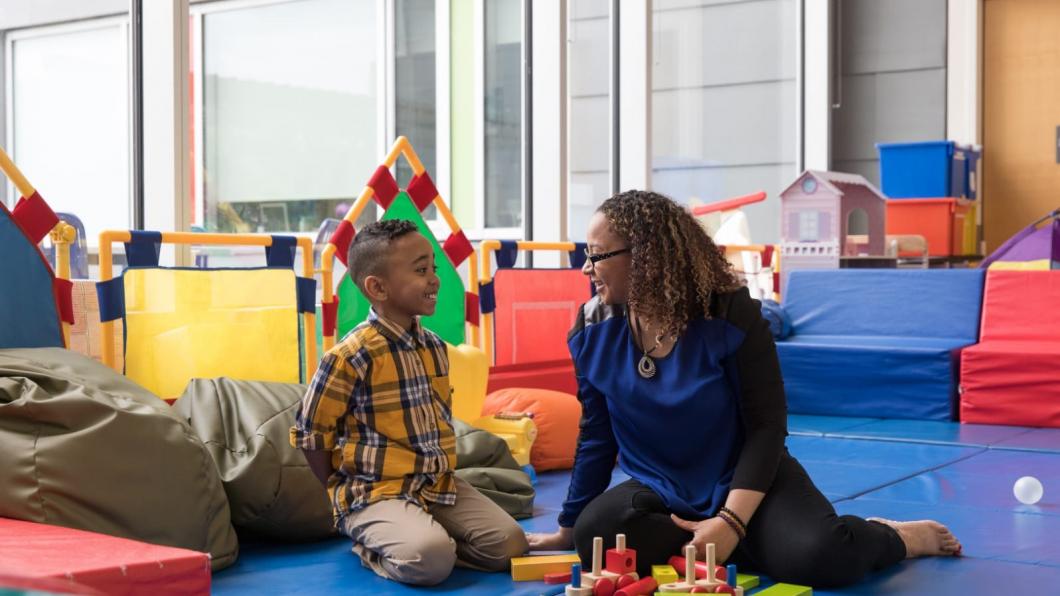
Autism shouldn’t be awkward, says parent
Autism shouldn’t be awkward, says parent.
For Autism Awareness Month, Alifa Khan could provide a long list of changes she would like to see in terms of increased understanding and acceptance of a disorder that now affects 1 in every 66 children.
Alifa’s son, Junayd (a name that means ‘warrior’ in Arabic) who has autism and ADHD, is ten years old and is in Grade 5. He’s been coming to Holland Bloorview since 2013.
Every time Alifa explains Junayd’s diagnosis to people they meet, her wish is always that she doesn’t get ‘that look’. ‘That look’ involves a sudden change in facial expression, to one of pity and sadness.
Quick to dismiss
It also involves a chance in body language, “shoulders slouched forward, hands are clasped and there’s usually some kind of gasp or exhale,” said Alifa.
“A lot of people, once they hear ‘autism,’ assume my life is extremely difficult,” added Alifa. The tone of the conversations and how people speak to her can change. Sometimes there’s a sudden awkwardness that she finds incredibly peculiar.
It’s like Junayd is suddenly dismissed because he has autism. When he is dismissed because of people’s assumptions about his diagnosis, they also dismiss his amazing qualities, like the fact he is very creative, a strong reader and a wizard at memorizing facts and information.
Or they ignore the fact that he has a silly sense of humour and dreams of being an engineer. As soon as the word ‘autism’ is spoken, all of these things that make him who he is seem to become unimportant.
In Alifa’s experience, words that spark such dramatic responses from people include things like illness, an accident or something embarrassing. Autism is none of these things.
While it wasn’t what Alifa was expecting when she became a parent, autism has become a part of her life and something that has helped her see the world differently, not tragically.
Challenges but not a catastrophe
Alifa isn’t saying that raising a son with autism isn’t without its challenges. For Alifa, her biggest challenge lately is identifying and understanding Junayd’s emotions – where they come from, why he’s having them and what they mean for him.
She feels like an ‘emotion detective’ piecing together why Junayd behaves or reacts in a certain way. “Sometimes there will be a clue and sometimes there won’t be,” she said. “Sometimes I might figure it out after the fact.”
Awaiting adolescence
Alifa is also preparing for her next challenge: puberty. “He’s 10, but in terms of his growth and development, I was told he’s around seven years old,” she said.
Regardless, she wants Junayd to understand what healthy relationships are and what things may change as his body changes. “I’m trying to be as proactive as possible,” she said. “I’m looking for resources and people who can help me with starting that conversation.”
Chances are Alifa will find support from her fellow parents on Holland Bloorview’s Family Advisory Committee (FAC). Alifa has been an FAC member since 2013 and is currently serving as the committee’s Co-Chair.
Alifa chooses to see her son and others with disabilities for everything they can do, not everything they can’t do, and will continue to focus on her son’s remarkable strengths.
“He has this naivety that is so beautiful because it’s so untarnished,” she said. “He approaches everything with such curiosity that it makes me curious. He allows me to see things in ways that I never would have if it weren’t for him.”
So if you meet Alifa and she tells you about her son’s diagnosis, adopt her approach: “Fundamentally we’re all different, but our differences are what make us unique and what should bring us together. If we’re all different, there is so much we can learn from each other.”
